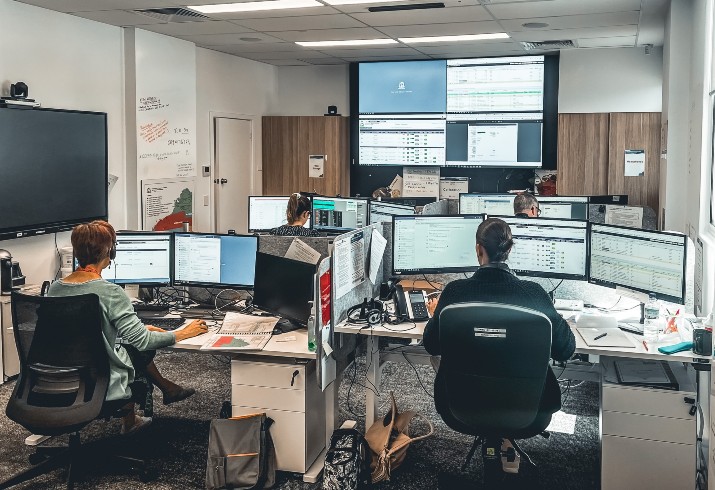Successful patient transfer coordination service extends to 24/7 coverage of regional WA

Western Australia’s first co-located collaboration between three leading regional health providers has been piloted over twelve months and will extend to a 24/7 service from 27 February 2023.
The Acute Patient Transfer Coordination (APTC) service is led by WA Country Health Service (WACHS) in partnership with Royal Flying Doctor Service (RFDS) and St John Ambulance (SJA).
The initiative brings together specialist medical and nursing staff with transport liaison officers in the same coordination centre with real-time information from all three organisations.
Able to instantly access live data across hospitals and transport services, the APTC team coordinates the clinical requirements with the most appropriate and available transport logistics, allowing the local team at the bedside to focus on patient care.
Assessing and balancing hospital and transport resources, the APTC team works behind the scenes to help every patient access the clinical care they need.
The service commenced in January 2022 and has been embraced by regional health teams, with around 15,000 patient transfers completed intra-regionally, and between metropolitan and regional hospitals and health facilities, since it launched.
The team is located in the highly regarded WACHS Command Centre – the 24/7 virtual hub that supports regional frontline clinicians with a specialist workforce including emergency physicians, nurses, midwives, palliative care specialists and psychiatrists, using state-of-the-art videoconferencing technology.
WACHS Chief Executive Jeff Moffet said the success of the service was due to the incredible partnerships working at every stage of the patient journey.
“While we’ve always worked closely with RFDS and SJA, this is the first time we’ve come together, located in the same room, sharing data and expertise – and it is reaping benefits for regional communities,” Mr Moffet said.
“Our frontline clinicians on the ground in local communities work closely with our APTC team to ensure each patient accesses the clinical care they need, quickly and efficiently.
“Our local hospital and healthcare teams are part of the communities in which they work and so they can offer insight and understanding, in addition to clinical expertise.
“Our investment in leading-edge videoconferencing technology has been ongoing for the past 10 years and we’re ahead of the curve with telehealth innovations.
“We’re proud that our investment in telehealth is helping us do more for regional communities, but it’s the people and the partnerships that have made our latest services a success.”

